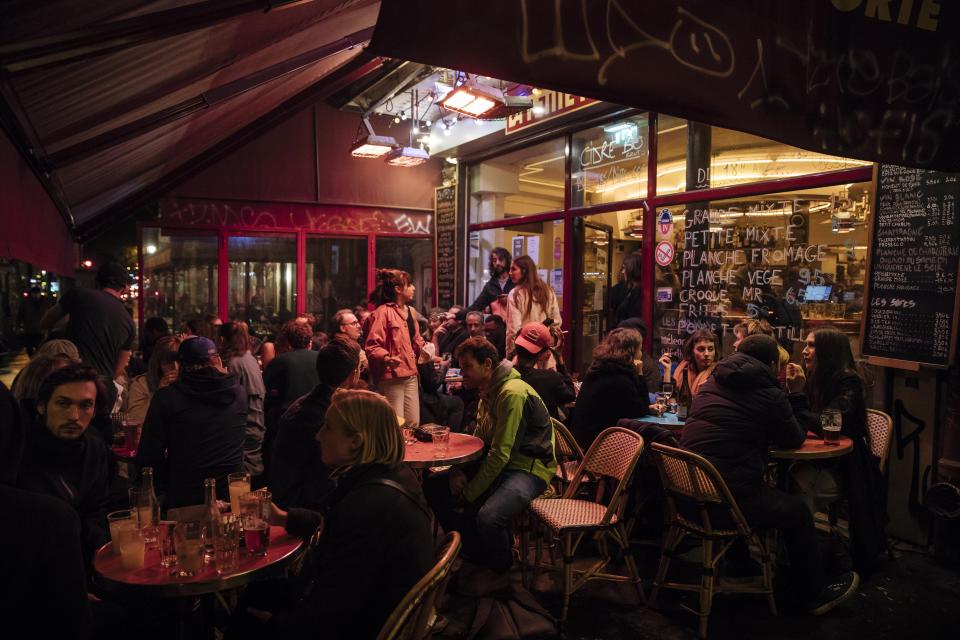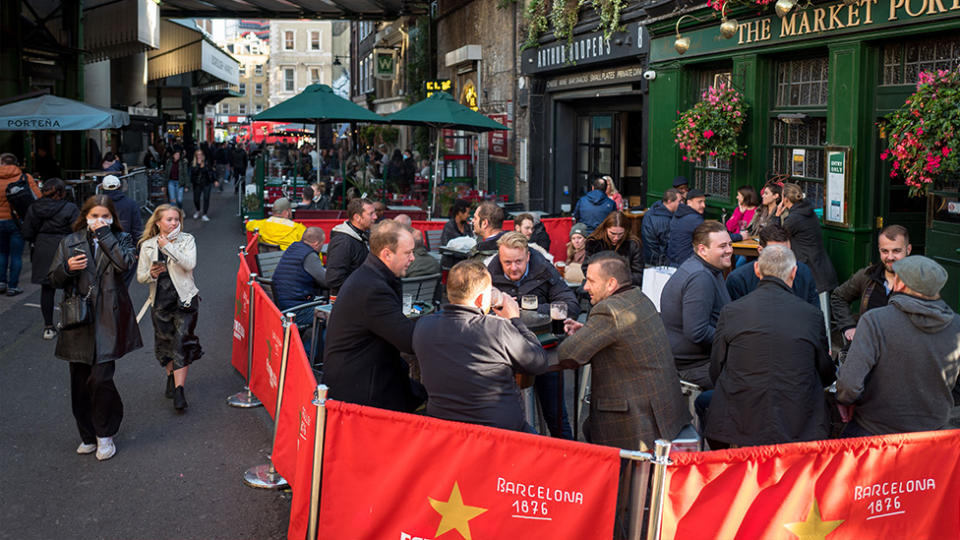Cities shut pubs as 'second wave' threatens Europe
A recent rise in Covid cases across Europe has forced governments to once again shut down pubs and restaurants.
Paris is to be placed on maximum Covid-19 alert, meaning bars will be forced to close for two weeks from Tuesday and restaurants will have to put in place new sanitary protocols to stay open.
Prime Minister Jean Castex's office said on Sunday there had been no improvement in the Paris region since the capital passed all three of the government's criteria for being put on the highest level of alert mid last week.
Working from home should be prioritised "now more than ever" in the Paris area and university lecture halls should be no more than half full, Castex's office said in a statement.

The reinforced restrictions will take effect from Tuesday.
"These measures, indispensable in the fight to curb the virus' spread, will apply to Paris and the three departments immediately surrounding it, for a duration of two weeks," it said.
For a city to be placed on maximum alert, the incidence rate must exceed 100 infections per 100,000 among elderly inhabitants and 250 per 100,000 among the general public, while at least 30 per cent of intensive care beds are reserved for coronavirus patients.
A week ago, restaurants and bars were shut down for a fortnight in Marseille, the southern city at the epicentre of the second wave, prompting protests and an unsuccessful legal challenge.
Restaurants in Marseille will be allowed to reopen early under the same new protocols.
France on Sunday reported 12,565 new cases of coronavirus, while 893 Covid patients had been admitted into intensive care over the past week.
Meanwhile, Poland has made masks compulsory after a spike in cases and the prime minister warned restrictions for schools may have to be tightened.
Poland does not rule out introducing a state of emergency if cases continue to grow, Prime Minister Mateusz Morawiecki said.
Daily coronavirus cases jumped more than 40 per cent on Thursday compared to the previous day.
While authorities have sought to reassure the public that hospitals can cope, doctors have warned the system could soon face serious difficulties.
UK mulls fresh restrictions, as measures have done “little”
The British government is mulling fresh restrictions on everyday life in England amid mounting evidence measures so far have done little to keep a lid on new coronavirus infections.
With the number of people needing to go to hospital with virus-related conditions rising and in some areas in the north of England alarmingly so, the pressure on the government to do more is mounting.
"We are currently considering what steps we should take, obviously taking the advice of our scientific and medical advisers, and a decision will be made shortly," British Housing Secretary Robert Jenrick told the BBC on Thursday.
"In some parts of the country, the number of cases are rising very fast and we are taking that very seriously," he added.

The hospitality industry in the north of England is thought likely to face additional restrictions in coming days, potentially akin to those announced in Scotland on Wednesday.
Scottish First Minister Nicola Sturgeon ordered pubs in Scotland's two biggest cities, Glasgow and Edinburgh, to close and restricted food and drink business in the rest of the country.
'What could go wrong?' Alarming China photos emerge amid pandemic
'This is a lie': Donald Trump's Covid message hidden by Twitter
'I am discriminated against': 'Privileged' woman's anti-mask claim
As elsewhere in Europe, restrictions have been reimposed in the UK over the past few weeks following a spike in virus infections.
On top of national restrictions, there are many local measures, largely relating to the number of people allowed to gather.

However there is growing evidence those areas that have seen additional restrictions have not experienced a slowdown in the epidemic.
In some, the number of new infections is 10 times higher than when the localised restrictions were announced.
- Reuters and Associated Press
Do you have a story tip? Email: newsroomau@yahoonews.com.
You can also follow us on Facebook, Instagram and Twitter and download the Yahoo News app from the App Store or Google Play.




